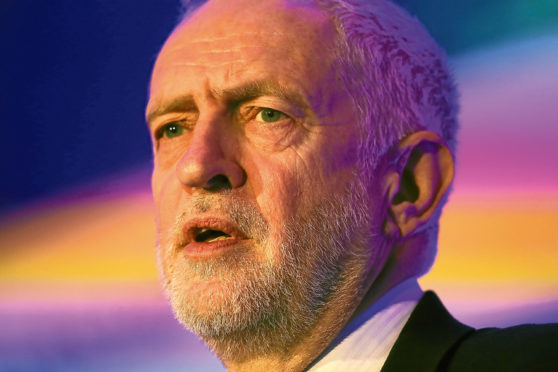Jeremy Corbyn was a spy for communist Czechoslovakia. Scrap that. He met Czech spies and this strongly suggests he may have a been a spy. No, Mr Corbyn met a Czech spy several times in the 1980s but the head of the Czech intelligence has dismissed any suggestion the Labour leader was a spy. Oh, and all along Mr Corbyn has also called the story rubbish.
The disintegration of the claim the Labour leader was working for a foreign government as a young MP has been an embarrassment for the trade of journalism. The Sun and The Daily Mail have run with the tale, only to find their copy didn’t stand up to scrutiny. The best we can say that is Mr Corbyn met Czech diplomats.
Periodically I am rung by journalists trying to prove a link between the Kremlin and the Scottish Government pre-2014. If such a link exists, I’d love to know and it should be exposed. But I have no knowledge of any link, the hack has no evidence, and the ‘story’ evaporates over the phone.
An old trick – slurring British politicians with Russian/communist links – is back in fashion.
We may yet return to the heyday when The Sunday Times and the tabloids periodically named Labour politicians and trade unionists as shills for what Ronald Reagan called the Evil Empire.
The origins of this slur lie in the establishment. In the 1950s and 1960s well-educated, privileged men betrayed their country as spies for the Soviet Union. True tales of Cambridge spies gave the public good reason to think that maybe everyone was at it.
Come 1979 and the Prime Minister, Margaret Thatcher, would use the idea of disloyalty as a weapon against Labour. Ties with Russia were no longer a thing for establishment insiders but for left-wing outsiders.
Mrs Thatcher regularly denounced “socialism” at question time in the Commons. It served her to present a Britain that was under threat from “enemies within” working to undermine the state, and thus the need for her firm hand, American Cruise missiles on UK soil and the ferocity in dealing with the miners’ strike.
The press, presumably egged on by the security forces, came to believe this version of Britain, and loved any suggestion that lefties were fifth columnists for communism.
The only trouble is that of the three substantial claims made against Arthur Scargill, Neil Kinnock and Michael Foot, not one was true.
In 2002 the former Daily Mirror editor Roy Greenslade published a mea culpa in the Guardian. He had been in charge when the Mirror claimed that Mr Scargill had been fiddling union funds and taking money from the Soviets during the miners’ strike.
The source for this claim had just been found guilty of telling lies in a French court in matters relating the allegations against Mr Scargill and Mr Greenslade had the honesty to admit that the original story no longer stood. However, in the age of the internet, the false allegation still attaches to Mr Scargill’s name – digital information makes any stain indelible by mass repetition.
Two years later The Sunday Times boasted of “Kinnock’s Kremlin Connection”. It was an election year in 1992, which explains the excitement of the right-wing paper, and why it so over-cooked its meagre fact: the Labour leader had once met a Moscow diplomat.
That story burned up in the glare of proper inquiry but three years later Michael Foot, leader of the Labour Party in the early 1980s, was accused of spying for Russia. Mr Foot sued The Sunday Times and won.
Mr Corbyn, then, is the fourth left-wing figure to be caricatured in the same way, and for the caricature to collapse in short order. With the original claim disintegrating, the same papers leapt on Jeremy Corbyn’s apparently “sinister” video message rubbishing the story.
The Sun leader column described Mr Corbyn’ short message thus: “At the end of 104 second rant, Mr Corbyn issued his thinly veiled vow for retribution to say: “We’ve got news for them: change is coming”.
It is not a rant, nor is it sinister. It is wishful in implying that Mr Corbyn will be the next PM, and direct in suggesting a change in media regulation – as recommended by Lord Leveson after his inquiry into the phone-hacking scandal (crimes conducted by the same publishing company that owns The Sun and The Sunday Times).
Spying for another country is clearly a threat to our democracy, as is the intervention in our democratic elections by Russia, but so too is bad journalism.
Did the original Cambridge spies imperil British democracy? Not that you’d notice decades on.
Has Russia yet achieved much by polluting social media with propaganda? We know it’s done, but cannot really tell if it changes much.
Yet bad journalism – the slurring of people and ideas to suit the agendas of rich proprietors and the powerful – has a long history of causing havoc.
The Sun and The Daily Mail have managed two astonishing things from this farrago. The first is to make Jeremy Corbyn look better than before. The second is to justify his calls for press regulation.
